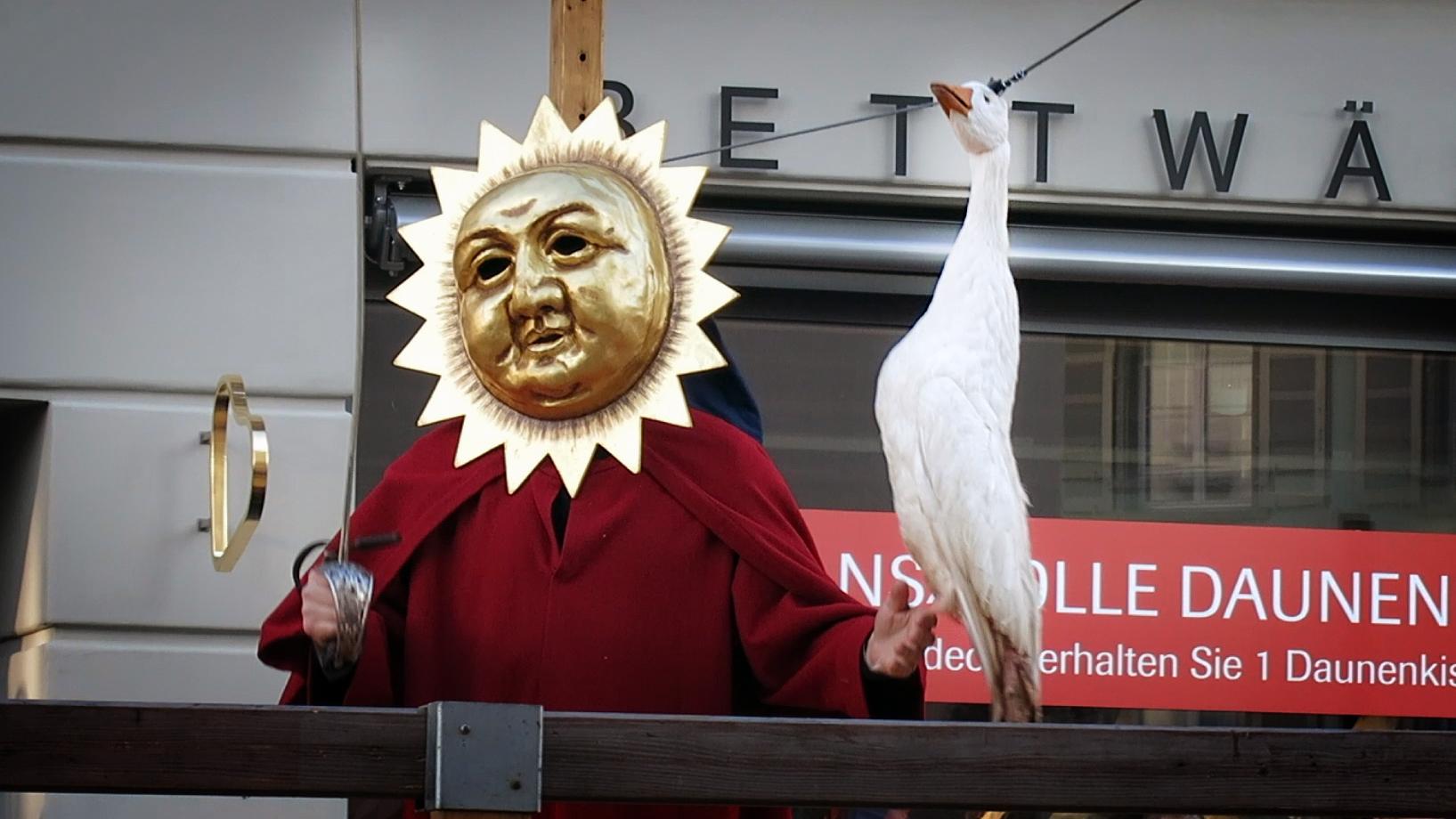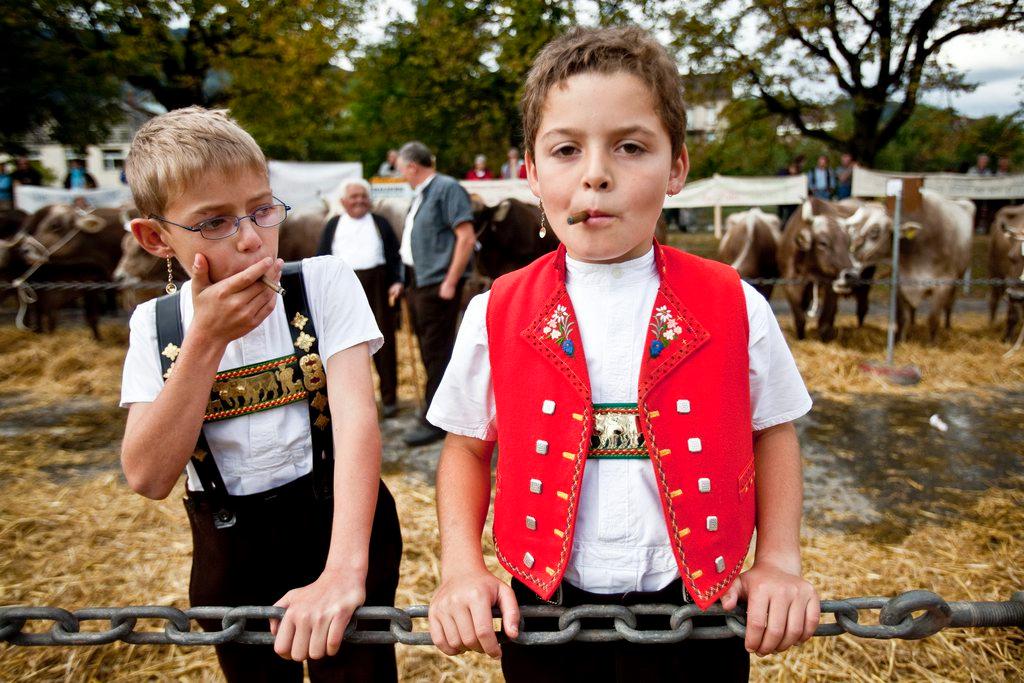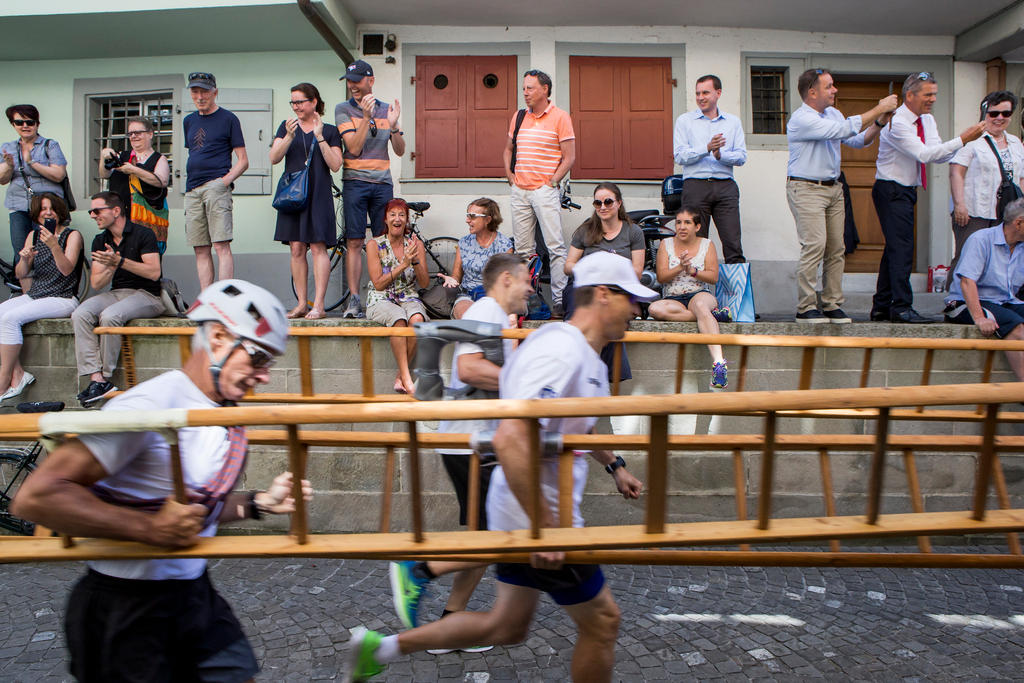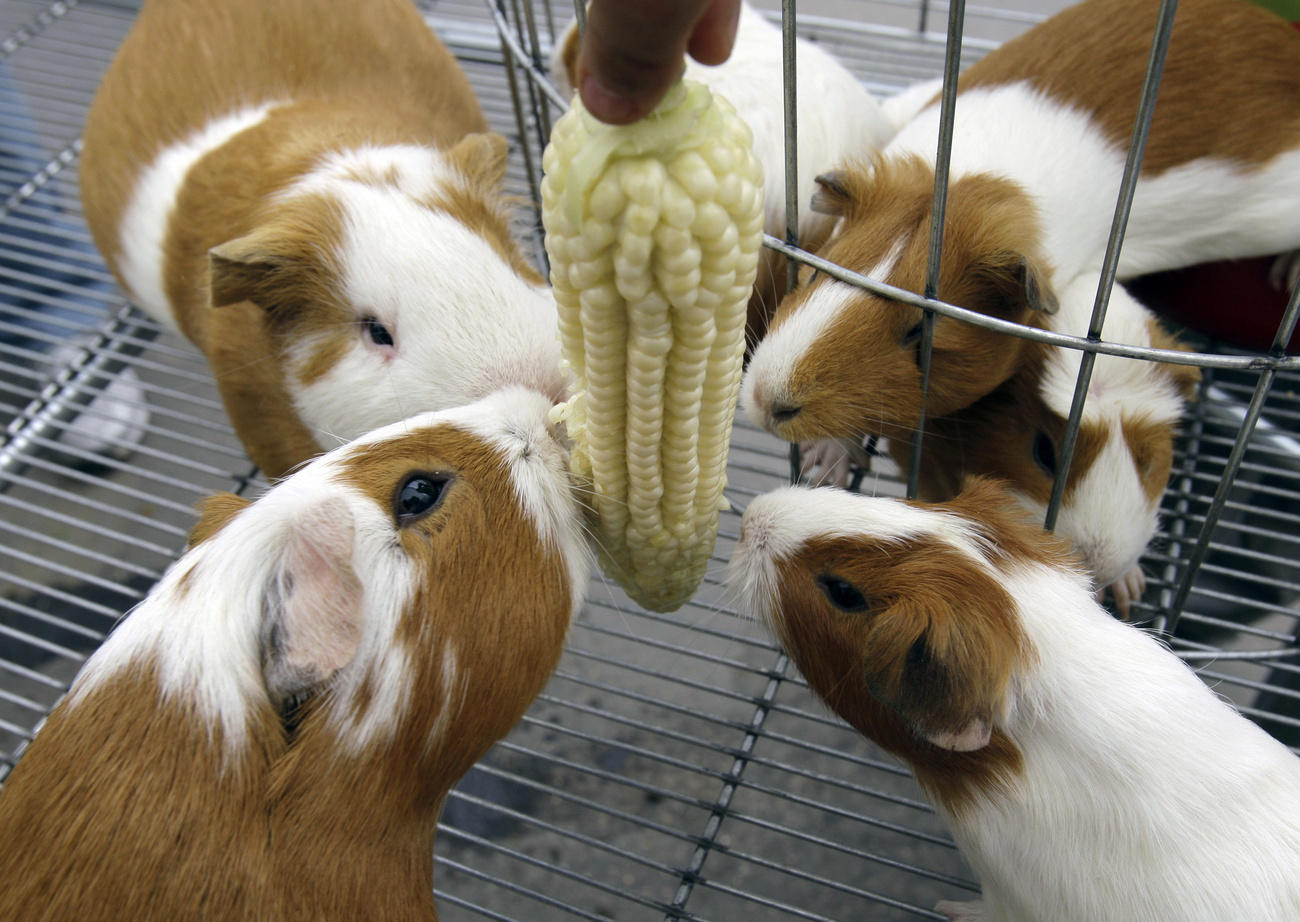They do what? Five frankly bizarre Swiss traditions
Christmas is coming, the goose is getting decapitated. Yes, it’s St Martin’s Day, which in central Switzerland involves beheading poultry with a sabre and pulling funny faces in exchange for cheese. However, this is far from the only unusual Swiss custom. Brace yourself for five of the weirder ones.
Gansabhauet

More
Cutting the goose loose
The unwary traveller will get a shock passing through the central Swiss town of Sursee on November 11, St Martin’s Day.
On a stage in front of the town hall, a dead goose hangs from a wire. Lots are drawn among those interested in taking a swing at the bird with an antique cavalry sabre. Clad in a red cloak, a blindfold and a golden mask shaped like the sun, they try their luck one by one.
Between rounds of the Gansabhauet, which dates back to the 19th century, if not earlier, children get a piece of cheese for making silly faces and the braver ones climb a pole to fetch a present from a tree. After two geese are gone, one after the other, there’s also a potato sack race where children bite at sausages suspended from the wire.
Spark Sunday

More
The Swiss cattle shows where six-year-olds smoke
Another eyebrow-raising tradition takes place in Appenzell in eastern Switzerland at the end of winter. On the fourth Sunday of Lent, visitors to the cow shows will be amazed not only by the ornately decorated bovine headdresses, but by children as young as six legally puffing away on cigarettes, cigars and pipes.
A spokeswoman for Appenzell Tourism doesn’t know where the tradition of Funkensonntag (Spark Sunday) comes from – she says it’s always been like that – but she admits that it’s “certainly a paradox that while smoking is being banned in more and more places, in Appenzell even children can do it”.
‘Pschuuri’ Ash Wednesday

More
The dark Swiss fertility tradition with hunters and ‘victims’
Looking for the least politically correct custom in the world? A strong contender must be the “Pschuuri” Ash Wednesday festival in eastern Switzerland, in which masked men pin down young women and force them to wear blackface.
“Pschuure” means “to blacken” in the local dialect and is an important part of carnival in Splügen, a village near the Italian border in canton Graubünden.
The day begins with children getting dressed up and harmlessly going from house to house with a basket around their neck begging for sweets. In the afternoon, things get darker. Literally. Unmarried young men, “Pschuurirolli”, put on furs, masks and bells and armed with a sackful of a greasy coal mixture, they hit the streets looking for children and, in particular, young women who are also single.
Cherry Charge

More
Let the cherry picking begin!
Zug is a cherry canton, and to mark the start of the cherry season around May, the “Chriesigloggä” (cherry bell) of St. Michael’s Church rings out while people of all ages sprint through the city’s cobbled alleys holding long wooden ladders.
This all goes back to an old Swiss tradition when locals used to rush off with eight-metre ladders through the Old Town to start picking the cherries grown on nearby common land. These days the “Chriesi-sturm” (cherry charge) is run just for fun and is followed by a massive lunch and the start of the traditional cherry market.
The Böögg

More
Exploding snowman hints at a mild summer
Don’t try this at home! Zurich’s annual Sechseläuten (“Six Bells”) spring parade signals the burning of the Böögg – an effigy representing the long winter months.
But the Böögg doesn’t just burn – he explodes, thanks to a headful of explosives. Legend has it that the quicker the Böögg’s head goes off, the warmer and sunnier the summer will be. This year it took 17 minutes and 45 seconds, meaning a mild summer. As it turned out, the summer was relatively short but hot.

In compliance with the JTI standards
More: SWI swissinfo.ch certified by the Journalism Trust Initiative












Join the conversation!